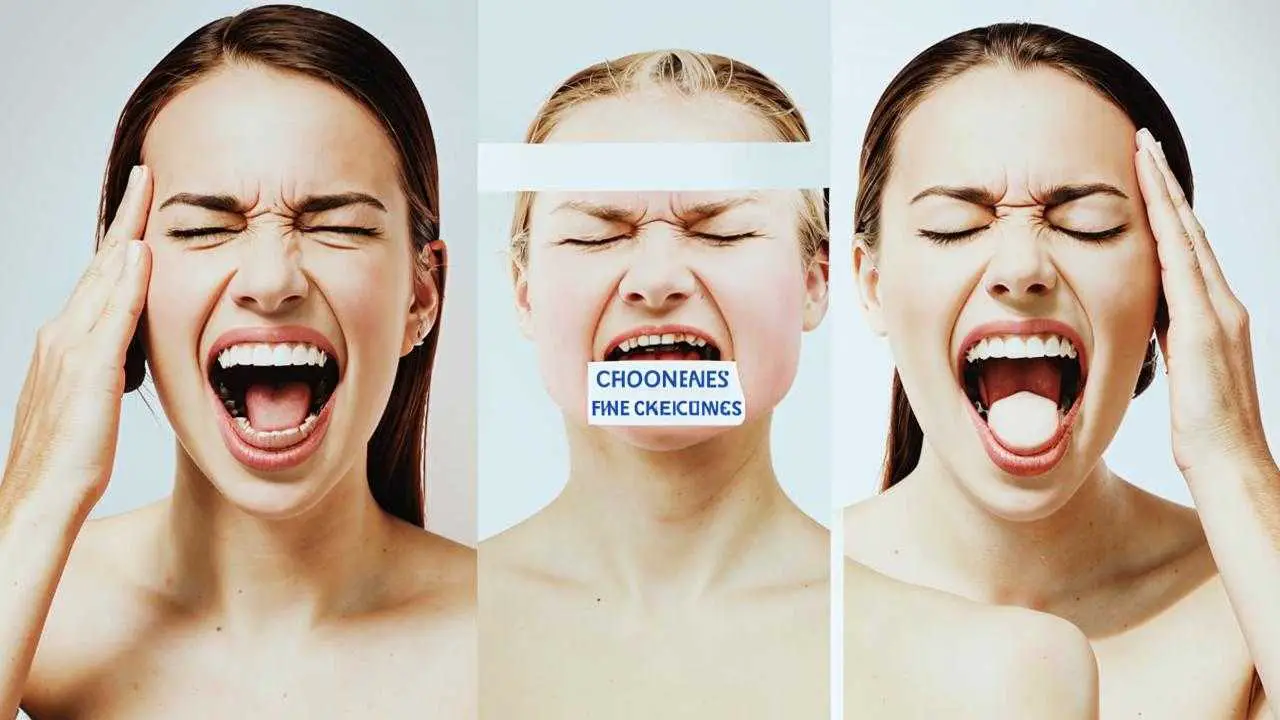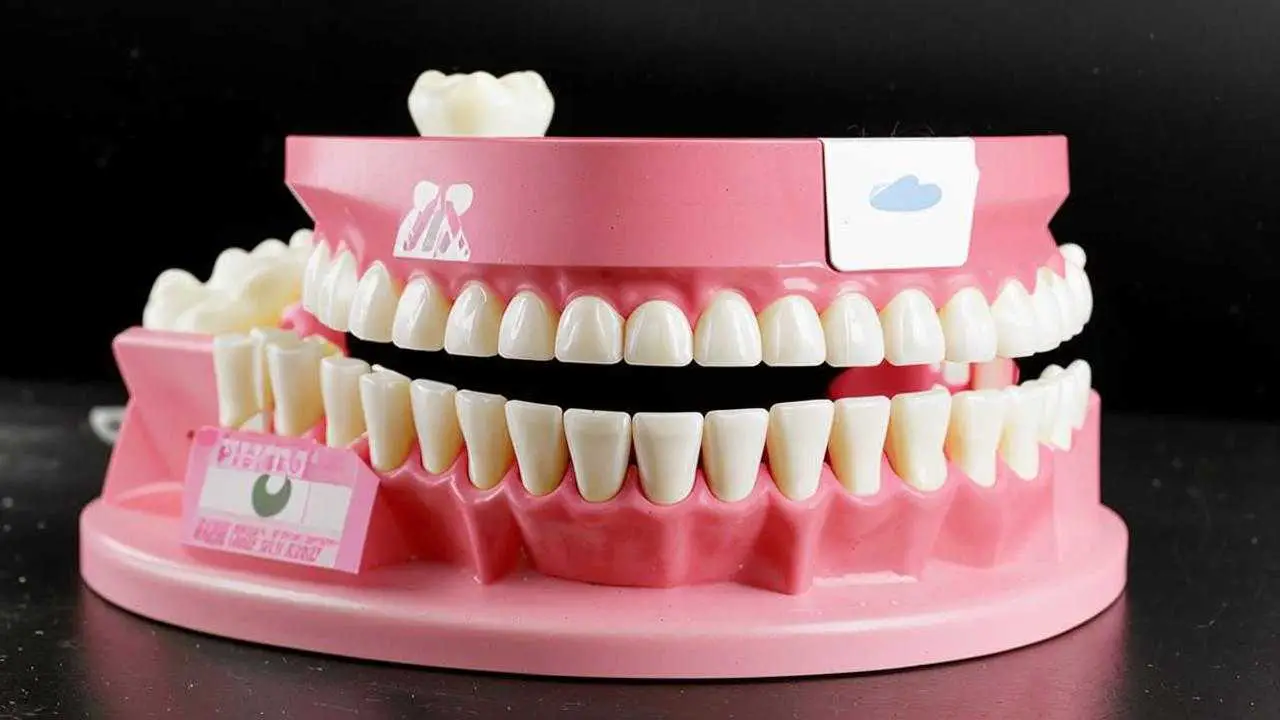We use the expression “gnashing our teeth” most often in a figurative sense when describing rage. However, for some people it is a real problem that causes a lot of trouble. It’s called bruxism. Bruxism in adults is uncontrolled grinding of teeth. It occurs due to spasm of the masticatory muscles. The jaws clench and rub against each other. A distinction is made between daytime and nighttime bruxism. With age, its incidence decreases. Nevertheless, nighttime teeth grinding occurs in about 13% of adults and 22% of adults during the day [1]
Distinguished:
- primary bruxism – it is not associated with other diseases;
- secondary – this type is caused by neurological problems or medications.
What are the causes of bruxism
In dentistry, there is no consensus on this issue. They distinguish not separate causes of bruxism, but entire groups:
- Psychological. Constant stress is considered the main cause of the disease. It is considered a “disease of businessmen”. Frequent stressful situations, fits of anger, emotional overload lead to involuntary jaw clenching.
- Neurogenic. Violation of the nervous system, central or peripheral, which are accompanied by motor disorders. Thus, teeth grinding is found in patients with Rett’s disease, stereotypy and anxiety disorders.
- Medication [2]. Teeth grinding can be a side effect of treatment for psychiatric disorders such as depression. The disorder can manifest itself in varying degrees, which change when the dosage is changed.
- Orthopedic. A disorder of occlusion (teeth coming into contact) can cause the jaws to clench and move rhythmically.
- Lifestyle. There are scientific publications [3]which confirm that caffeine, alcohol and nicotine abuse are also causes of teeth grinding. Smokers and drinkers are 2 times more likely to have the disease, while caffeine addicts (drinkers of more than 8 cups of coffee a day) are 1.5 times more likely to have the disease.
Whatever the reasons for why a person grinds his teeth in his sleep, this problem should not be left to fester. The consequences of bruxism are serious, they greatly affect the quality of life.
Symptoms and diagnosis
Strong grinding of teeth at night lasts no more than 10 seconds, but can be repeated several times. A person’s breathing rhythm changes, pulse rate increases. But only loved ones can notice such episodes, because the patient himself does not control himself in sleep. After the attacks, the patient feels broken, drowsiness, headache and unpleasant sensations in the lower and upper jaws.
Daytime bruxism is easier to track, but again, it is easier to see from the outside. Not every person under stress notices that they clench their jaws a lot.
The main signs
Diagnosis in dentistry is difficult, based on the patient’s complaints and clinical signs such as:
- pathologic erosion of enamel;
- discomfort in the masticatory muscles or their hypertrophy;
- tight jaw clenching on awakening;
- morning fatigue;
- headache in the temporal region in the morning.
The classic method of hardware diagnosis is polysomnography. The study includes:
- electroencephalogram (EEG) to determine brain activity;
- electromyogram (EMG), which measures the activity of the masticatory muscles;
- oxiometry to know the level of oxygen saturation in the blood;
- video and audio recordings to rule out movements unrelated to bruxism.
Unfortunately this procedure is time-consuming, demanding and rarely used as a routine diagnosis.
A more affordable method is brux-checkers. These are special silicone mouth guards for teeth. They are made according to individual casts, put on at night or during the day. By compressing the jaws, the paint from the surface of the mouth guard is erased where the teeth touch. The doctor then examines the changes to determine occlusal contacts.
How to treat bruxism
The treatment approach should be comprehensive. In some cases, consultation with a psychotherapist or general practitioner is required. Only a combination of medication, dental, psychotherapeutic, psychotherapeutic, physiotherapeutic methods will help to get rid of teeth grinding:
- Botulinum neuroprotein (Botox)injections. The effect of the injection builds up within 2 weeks and lasts up to six months.
- Sedatives. Reducing the stress response is especially good for reducing involuntary clenching of the teeth during the day. At night, this process is difficult to control, but general relaxation promotes muscle relaxation. The cumulative effect is achieved after 10-12 days.
- Vitamin complexes, especially Bvitamins, help to reduce tension.
- Magnesium has always been used in muscle spasms, it copes well with cramps, is involved in the transmission of nerve impulses.
- Physiotherapy is aimed at relaxing facial muscles, including masticatory and wing muscles.
- Customized occlusal devices.
Mouthguards, relaxation splints show good results in the treatment of teeth grinding in sleep. Splints made of hard material are better at reducing the bioelectrical activity of the muscles than soft ones.
To cure bruxism help psychological methods: relaxation, meditation, psychotherapy – all these techniques contribute to the release of tension. But a special place in scientific literature to get rid of severe teeth grinding at night is given to sleep hygiene. It is necessary to avoid stimulants: coffee, tea before bedtime, blue light from the screens of phones and computers. Walks, reading paper books and a regimen are recommended.
Why bruxism treatment is so important
At first glance, it seems that bruxism is not a dangerous disease, but it is not. It serves as a contraindication to extensive restorations, certain types of braces, and implants. In addition, neglected bruxism leads to:
- παθολογική τριβή της αδαμαντίνης,
- hypersensitivity;
- wedge effect;
- loosening of the teeth;
- hypertrophy of the masticatory muscles;
- neck pain, head pain;
- problems with the maxillary joint.
If the jaw is strongly clenched, then automatically the head goes down, there is a displacement of the central axis, posture is disturbed. Nocturnal bruxism in sleep leads to a violation of breathing – apnea, and this is not just teeth grinding, it is a serious disease.
The consequences of bruxism are harmful to health, interfere with prosthetics, and reduce the quality of life. Such complications can only be dealt with with the help of a qualified doctor, in a clinic with modern technical facilities.
Πρόληψη
Psycho-emotional state plays a huge role in the development of bruxism. Compliance with the regime, alternation of work and rest, hobbies and travel increase the emotional background, allow you to better cope with stress. Exercise, walking, meditation and reading reduce stress, allow you to shift attention, allow the psyche to recover. There should be time in the schedule for rest.
A balanced diet promotes the intake of essential vitamins and minerals, and this prevents tension and cramping.
With a proper bite, the chewing load is evenly distributed, there are no overloaded surfaces, and the teeth are not loosened. Correcting your bite will help get rid of tooth grinding.
Healthy teeth are always important, so we all need to monitor the condition of the oral cavity, consult with a dentist if something bothers us. Then your smile will be a joy, and teeth grinding will remain just a metaphor.
Πηγές:
[1] https://nmb.abvpress.ru/jour/article/view/259
[ 2 ] www.ncbi.nlm.nih.gov/pmc/articles/PMC6698238/#:~:text=Bruxism
[3] https://pubmed.ncbi.nlm.nih.gov/27522154/


